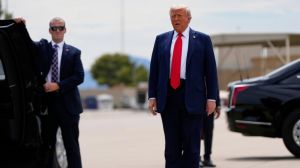LS passes FEMA, Money Laundering Bill
NEW DELHI, DECEMBER 2: Lok Sabha on Thursday passed the Prevention of Money Laundering Bill and the Foreign Exchange Management Bill, bot...

NEW DELHI, DECEMBER 2: Lok Sabha on Thursday passed the Prevention of Money Laundering Bill and the Foreign Exchange Management Bill, both of which would replace tight foreign exchange laws of 1973. The bills will still have to be cleared by the upper house of Parliament, the Rajya Sabha.
Finance minister Yashwant Sinha moved for passage the prevention of Money Laundering and the Foreign Exchange Management (FEMA) Bills together in the Lok Sabha, saying the legislations would provide stringent penalties to offenders and facilitate external trade by removing hurdles to legitimate foreign exchange transactions.
FEMA aimed at consolidating and amending the law relating to foreign exchange with the objective of facilitating external trade and payment and for promoting orderly development and maintenance of foreign exchange market in the country, he said.
The Money Laundering Bill proposed to provide for rigorous imprisonment for three to seven years and fine upto Rs 5 lakh. Congress members, whilesupporting the bills, moved certain amendments to make the provisions more stringent. Left party members had opposed the bills during introduction on November 29 saying that the measure would benefit only money launderers and hawala operators.
Dismissing the apprehensions of members, who raised objections at the introductory stage, as "baseless and a figment of imagination", Sinha said the bill was needed in terms of a new situation that has arisen as a result of liberalisation in foreign exchange management.
Sinha said the government has already introduced a bill to prevent money laundering and it would be in fitness of things that both were taken up for consideration together.
Allaying fears of Left members, he said the foreign exchange reserves stood at $ 34 billion which was unprecedented. The current account deficit was less than 1.5 per cent of the GDP in 1998-99 and it would not cross two per cent in the current year despite pressure on account of oil import bill, he added.
He rejectedcriticism that the house did not have the competence to legislate the bill saying it was up to the speaker to refer the measure to the parliamentary standing committee to consider it afresh.
Photos





- 01
- 02
- 03
- 04
- 05


























